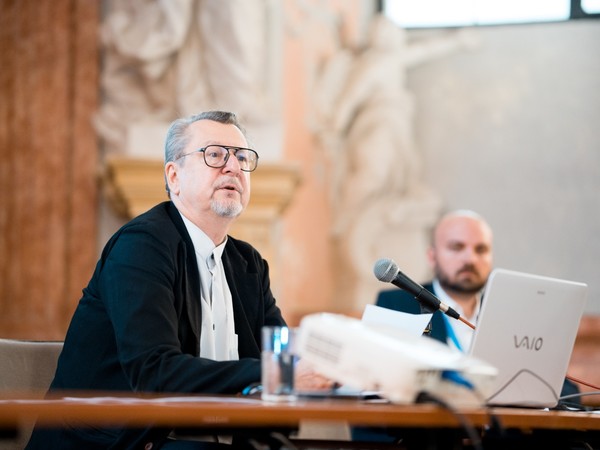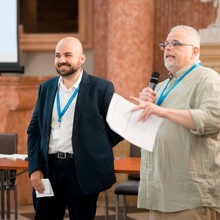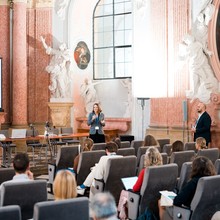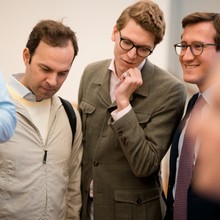An international symposium of experts specialising on court society in the Middle Ages took place from 22–24 August at the Palacký University Faculty of Arts. The interdisciplinary conference entitled Courtly Experiences in the Pre-Modern World, c. 1200–1800: Cultural, Material and Sensory Experiences in the World of the Court was held in Olomouc for the first time.
Throughout pre-modern history, royal and princely courts around the world were epicentres of activity, interaction, exchange, and modes of cultural production that not only defined the environments of various courts but also shaped the encounters that took place within different court cultures. The Olomouc conference explored the intersections and nuances of courtly experiences, both from the physical and material as well as the sensory world.
“Four dozen scholars addressed a very wide range of material and sensory experiences at court in their conference papers. Among other things, they delt with the role of gifts, secret codes, exotic animals, games, conspiracies and scandals, clothing, scents, flavours, recreation, and sports. For example, Dustin Neighbors from Helsinki talked about early modern hunting as a multisensory experience that was meant to amaze and build a space for social interaction. Cecilia Aneer from Uppsala looked at the use of cloths and furs in Swedish court dress as an indicator of social status. Marc W. S. Jaffré of Groningen compared the material and sensory experiences of visitors to the French and Japanese courts in the 17th century; hospitality was a very important form of representation at the time, and any mistake was damaging to the reputation of the monarch. Jack Dykstra-McCarthy of Cambridge highlighted the complexity of descriptions of the culinary experiences of English envoys at the Ottoman court. Surprisingly, they did not focus on flavours but rather on the spatial and social aspects of the encounter,” said Patrik Paštrnák from the Department of History at the UP Faculty of Arts on behalf of the conference organisers.
The conference, organised by the UP Faculty of Arts Department of History with the support of the Centre for Research on Courts and Residences at the Institute of History of the Czech Academy of Sciences, was commenced in the Corpus Christi Chapel by the UP Faculty of Arts Vice-Dean Kristýna Solomon. The first keynote lecture was then delivered by Prof Karl Kügle (Oxford/Utrecht University).
“Professor Kügle, a leading expert on medieval music, spoke about acoustic physiognomies, that is, how music and sound perceptions helped to build and reinforce the identity of courtiers and court participants. The second keynote address was made by Oxford art historian Leah Clark, who focuses on cultural exchange between Italy and the Islamic world in the 15th century. In her lecture, she talked about the transcultural experience gained from visiting early modern courts,” commented Paštrnák.
He emphasised that the three-day prestigious Olomouc meeting was part of an interdisciplinary research on pre-modern monarchical courts. It included both historical disciplines (social and cultural history, art history, material culture and architecture, archaeology, etc.) and broader humanities and social sciences (anthropology, theatre studies, musicology). It aimed to analyse the phenomenon of the monarchical courts as a dynamic organism and a key instrument for the construction of power and social status. Courts could use a variety of means to do so.
“We conduct research on courts at the UP Department of History, occasionally collaborating with colleagues from other departments or faculties. This three-day event was the annual conference of the Society for Court Studies, launched in 1995 in the UK. Today it has branches in Europe and the USA,” concluded the UP historian.
In 2022, the conference was held in Helsinki, Finland, and last year in Madrid, Spain. This prestigious interdisciplinary meeting was held in Olomouc for the first time.




